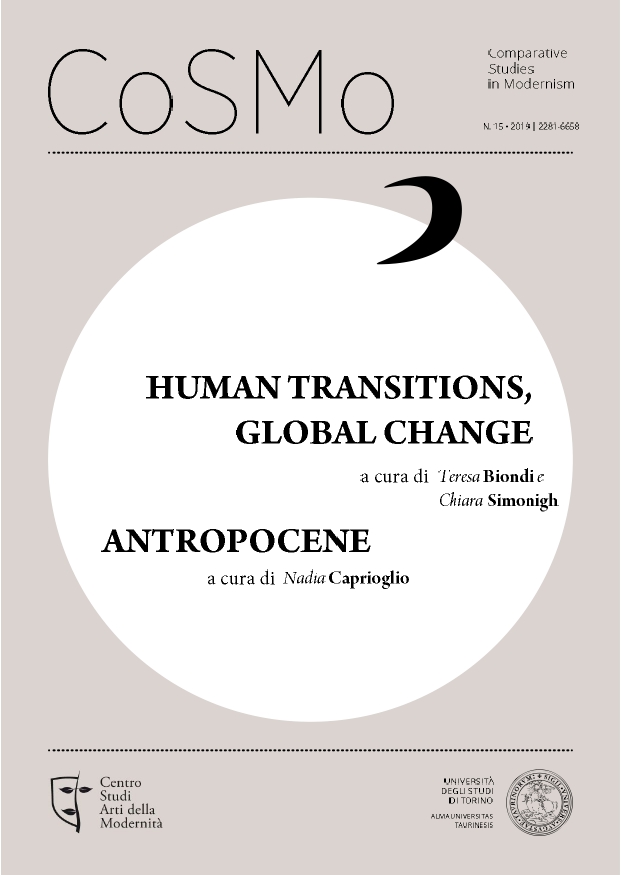Italian Eco-Trauma Cinema: From “Vajont” to “Un posto sicuro”
DOI:
https://doi.org/10.13135/2281-6658/4037Parole chiave:
Film Ecocriticism, Ecological Catastrophes, Traumatic Experience, Italian Cinema, EternitAbstract
Moving from Stolorow’s works, the psychological notion of trauma is intertwined with a philosophy of existence that meets “worlds apart,” inaccessible private universes based on traumatic experiences. Faced with these unfathomable emotional spaces, film gives images to what is unspeakable, and, through the contradiction between representation and what remains unrepresentable, film images are involved in the tension between a duty not to forget and a duty to help to forget. This article will focus on cinema of trauma and, in particular, on filmic representation of ecological catastrophes in contemporary Italian cinema. The two movies Vajont (Martinelli 2001) and Un posto sicuro (Ghiaccio 2015) will be analysed in order to highlight key aspects of a film aesthetic in which the anti-narrative dimension of traumatic experience is raised to the status of philosophical principle.Downloads
I dati di download non sono ancora disponibili.
##submission.downloads##
Pubblicato
2019-12-28
Fascicolo
Sezione
Focus | Antropocene
Licenza
Gli autori mantengono i diritti sulla loro opera e cedono alla rivista il diritto di prima pubblicazione dell'opera, contemporaneamente licenziata sotto una Licenza Creative Commons - Attribuzione che permette ad altri di condividere l'opera indicando la paternità intellettuale e la prima pubblicazione su questa rivista.







